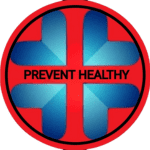Cardiovascular System, Kidney
Kidney disease symptoms and treatment
![]()
Kidney disease encompasses a range of conditions that affect the kidneys’ structure and function, including chronic kidney disease (CKD), acute kidney injury (AKI), polycystic kidney disease (PKD), and others. Symptoms and treatment can vary depending on the specific type and stage of kidney disease. Here’s a general overview:
Symptoms of Kidney Disease:
- Changes in Urination: This can include frequent urination, especially at night (nocturia), difficulty urinating, blood in the urine (hematuria), foamy urine, or decreased urine output.
- Swelling: Swelling in the legs, ankles, feet, face, or hands due to fluid retention (edema) can occur.
- Fatigue and Weakness: Kidney disease can lead to anemia and build-up of waste products in the blood, causing fatigue and weakness.
- Shortness of Breath: Fluid accumulation in the lungs (pulmonary edema) can lead to difficulty breathing.
- Nausea and Vomiting: Build-up of waste products in the blood can cause nausea, vomiting, and loss of appetite.
- High Blood Pressure: Kidneys play a crucial role in regulating blood pressure. Kidney disease can lead to hypertension.
- Itching and Skin Rash: Build-up of waste products in the blood can cause itching and skin rashes.
- Muscle Cramps and Twitching: Electrolyte imbalances due to kidney dysfunction can lead to muscle cramps and twitching.
- Bone Health Issues: Kidneys help maintain the balance of calcium and phosphorus in the body. Kidney disease can affect bone health and lead to bone pain and fractures.
Treatment of Kidney Disease:
- Medications: Depending on the underlying cause and symptoms, medications may be prescribed to control blood pressure, manage blood sugar levels (if diabetes is present), treat anemia, reduce cholesterol levels, or address other complications.
- Dietary Changes: A kidney-friendly diet low in sodium, potassium, and phosphorus can help manage symptoms and slow the progression of kidney disease. A dietitian can provide personalized dietary recommendations.
- Fluid Management: Limiting fluid intake may be necessary to prevent fluid overload and swelling.
- Lifestyle Modifications: Quitting smoking, maintaining a healthy weight, exercising regularly, and avoiding excessive alcohol consumption can help manage symptoms and slow the progression of kidney disease.
- Dialysis: In advanced stages of CKD or in cases of acute kidney injury, dialysis may be necessary to remove waste products and excess fluid from the body artificially.
- Kidney Transplant: For individuals with end-stage kidney disease, a kidney transplant may be the best treatment option. A healthy kidney from a compatible donor replaces the failed kidneys, allowing the recipient to regain kidney function.
Treatment for kidney disease is tailored to each individual’s specific condition and needs. Regular monitoring by healthcare professionals is crucial for adjusting treatment as needed and preventing complications. Early detection and management of kidney disease can help improve outcomes and quality of life.
Supplement for Kidney Inflammation and Kidney Failure


Recommended Products
Wheatgrass
Skin Inflammation Health Care Set
Cancer Health Care Set 2
Thyroid Cancer Health Care Set